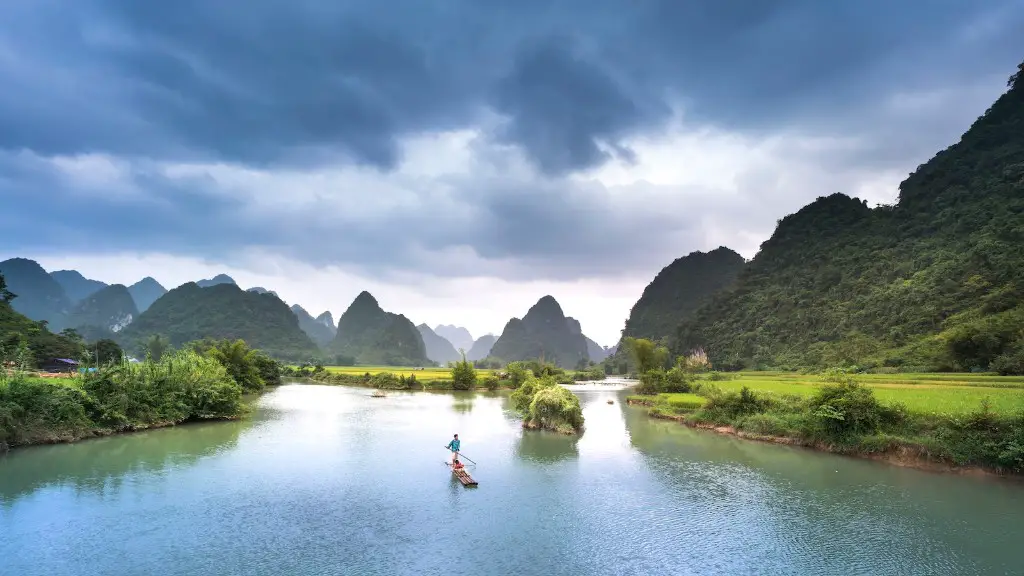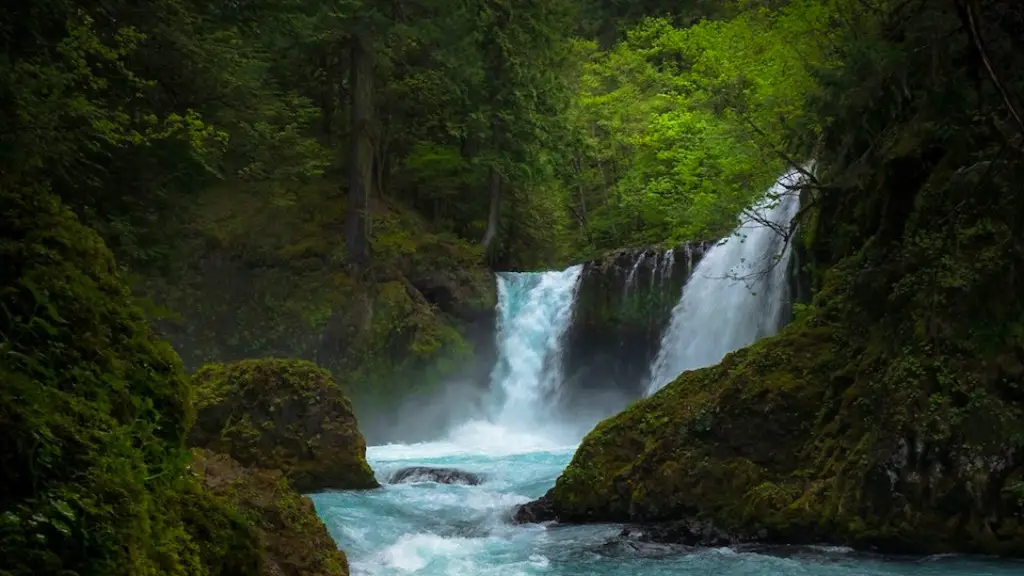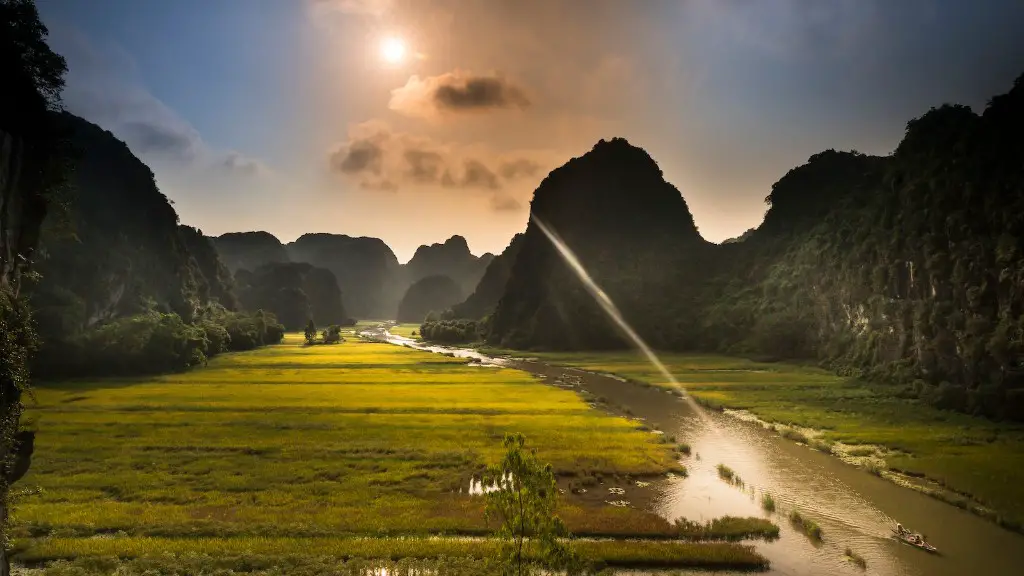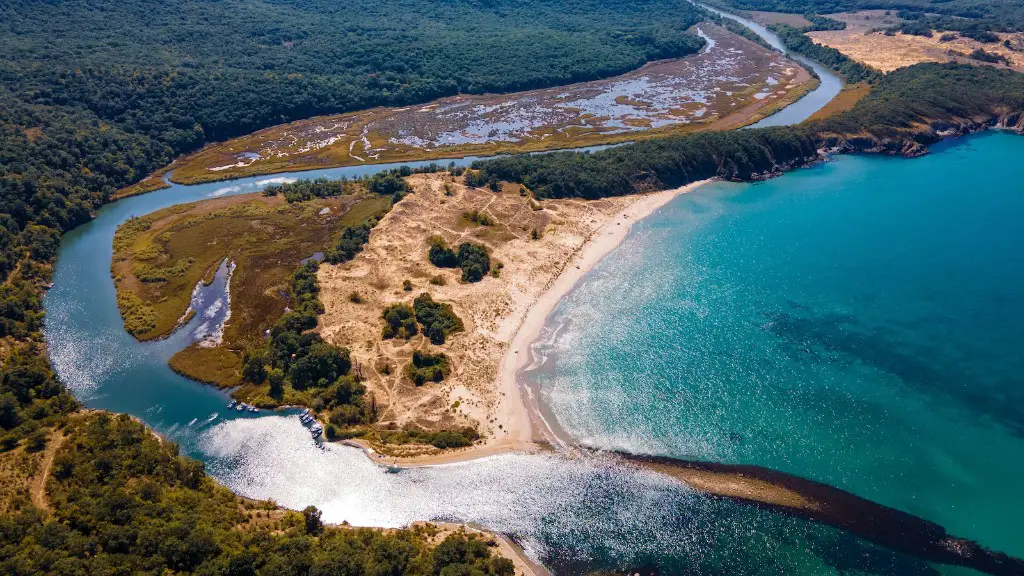The Nile River is probably the most important river in the world, at least when it comes to civilisations. It was vital to Ancient Egypt and was the lifeblood of the culture for centuries. Even 6,000 years ago its bountiful waters enabled the people of Ancient Egypt to cultivate the land and build a remarkable civilisation.
The Nile River provided Ancient Egypt with a number of utilities and benefits, including transport, food, irrigation, and soil enrichment. Transport was the most important utility of the river, as it allowed the Egyptians to move goods and trade with other civilisations along its course. The numerous tributaries of the Nile were also able to provide for other areas of life.
In terms of irrigation, the Ancient Egyptians were able to use the river to irrigate the crops and ensure that a large portion of their food source was always well-maintained. The rich soil created by the periodic flooding of the river was also of considerable benefit. The silt that was left behind after the flooding would act as an organic fertilizer improving the quality of the land and preventing over-farming.
In terms of food, the river was a source of food as well as water. The annual floods brought new fish and other life to the river’s waters, while the silt was ideal for sustaining crops. In addition, the banks of the Nile provided shelter and sustenance for the animals of Ancient Egypt, allowing them to thrive.
The Nile was also essential for communication. The river enabled the Egyptians to send messages to one another by ferry and also to transport their goods around the country. The Ancient Egyptians were able to move their goods from one part of the country to another due to the river, even if the land was not suitable for wagons or horses. This enabled them to gain access to new resources and markets, trade vital goods across the land, and develop enhanced diplomatic relations with foreign powers.
The Nile River has been in the news quite a bit lately, due to both the high rates of water usage and the fact that rising sea levels are affecting the flow of the river. Despite this, the Nile remains a vital source of water, food, transport, and communication throughout the region, and it will continue to be so for many years to come.
Environmental Impact
The environmental impact of the Nile River is widespread and significant. Over-usage of water has caused the river to become depleted in certain areas, leading to an increase in desertification. Pollution from industries and waste treatment plants, as well as unsustainable farming practices, all contribute to the pollution and water scarcity within the region.
The environment around the Nile is quite fragile and the rising sea levels are affecting the flow of the river. The impact of global warming has seen the sea levels rise significantly, which has had a devastating impact on the transport infrastructure and farming industry within the area.
Conservation efforts are ongoing in order to protect the river and its surrounding environment, as well as to ensure that the people within the region have continued access to clean and reliable water sources. Additionally, the government has been investing in technology and knowledge in order to develop more efficient irrigation systems, treat wastewater, and reduce pollution.
Health Benefits
The Nile River has not only had a huge economic impact on the region, it has also been beneficial for the health of the people living there. The river is a valuable resource for drinking, bathing, and cleaning, allowing for far greater hygiene levels than in other parts of the world.
The water from the Nile has been linked to the low rates of waterborne illnesses such as cholera and dysentery, due to its cleanliness and the availability of clean water. Additionally, the river is a vital source of fresh fish, providing people with a much more varied and nutritious diet.
The quality of water in the Nile is monitored and regulated by the Egyptian government, and regulations are put in place in order to ensure that the water is safe and clean. In addition, water-treatment plants are situated along the river in order to ensure that any waste or contaminants are removed.
Societal Impact
The Nile River has had a dramatic impact on the social and cultural landscape of Ancient Egypt. The river was a source of stability, providing a reliable source of food and transport, which enabled the Egyptians to settle and develop their civilisation.
The river was essential for developing a trading network, as well as for communication between the various settlements within the area. It allowed for a more organised way of life and enabled the creation of cities and towns, which in turn created a prosperous society.
The annual flooding of the river was not only important for irrigation, it also played an important role in religion. It was used as a metaphor for both fertility and life, and the floods were celebrated as a blessing by the Ancient Egyptians.
The Nile is still a very important cultural symbol within modern Egypt. It is seen as a source of pride, and it is still worshipped as a symbol of power and strength.
Modern Uses
The Nile River is still of great importance today and is used to its fullest. Modern use of the river includes transportation, hydroelectric power, irrigation, and fishing. In addition, new technologies have been developed in order to make better use of the river and its banks to produce food, as well as to create new forms of industry.
The Nile is also seen as a potential source for sustainable energy, as its waters are able to generate hydroelectric power. This is a renewable form of energy that works well with the flow of the river and its cycles. This helps to reduce emissions from fossil fuels and improves the quality of life in the area.
The river is also a popular tourist attraction and its banks are used for leisure activities. Boating and swimming are popular activities and they help to generate much needed income for the people living in the area.
Legacy
The presence of the Nile has had a lasting impact on the Egyptian people and their culture. Despite the rising sea levels and pollution, the people of Egypt continue to revere the river and rely on it for their daily needs.
The Ancient Egyptians saw the river as a representation of life and fertility, and it is still held in high regard today. The Nile has been a witness to centuries of development and has been an integral part of creating the modern world. The river has enabled the people of Egypt to develop a rich and unique civilisation and will continue to do so for many years to come.





